Media | Articles
This 1914 Series H Chevrolet Is a Piece of Rolling History
In a collection featuring a number of early Chevrolets and Fords, this one stood out. Though it had been decades, I immediately recognized No. 64, a 1914 Chevrolet Series H-2 Royal Mail roadster, as the same car I saw proudly displayed in the showroom of Braeger Chevrolet in Milwaukee back in the 1980s. This early Chevy has a storied history, and is believed by the H Model Register Chapter of the Vintage Chevrolet Club of America to be the oldest complete Chevrolet in existence.
No. 64 is part of a Hagerty Marketplace listing of 26 cars from the collection of the late Nashville businessman, Robert A. Jones, and appears to have spent much of its life in the Milwaukee area before joining Jones’ collection in 2003. Its serial number, 64, indicates a build date of mid-August 1913, putting it at the beginning of the Series H’s production run. The model’s success would help secure Chevrolet’s future, and chart General Motors’ course under William “Billy” Durant as well.
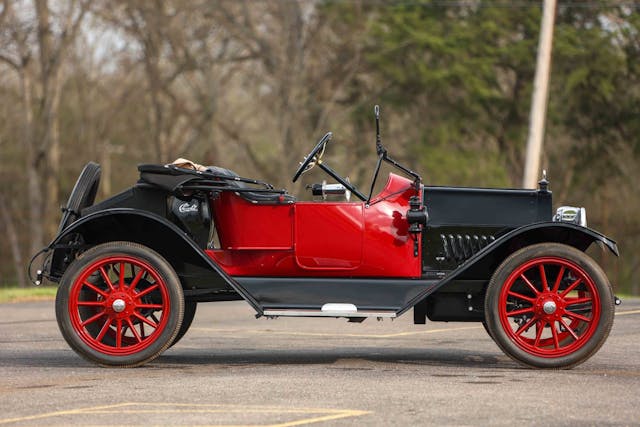
Before delving into this particular Series H, it’s worth contextualizing the importance of the model itself. Former Buick co-owner and General Motors founder Billy Durant, along with Swiss émigré Louis Chevrolet, incorporated The Chevrolet Motor Company on November 3, 1911. Other partners included Chevrolet’s brother, Arthur, and investors William H. Little; Buick’s other co-owner, James H. Whiting; and Durant’s son-in-law, Dr. Edwin R. Campbell. Their first Chevrolet automobile came in 1912 in the form of the large, expensive Series C Classic Six tourer. It was just another car few could afford, however, and an inauspicious start, as only five Series C cars were built that year.
Along with the Series C, the group also offered a small car under a separate brand called Little. William Little had been a manager at Buick but started his own firm in Flint, Michigan, building “the classiest of all roadsters.” The Little Four, as this small car was called, garnered few sales—2199 for the calendar year—but its $690 price was at least in Model T Ford territory.
The following year, in a further effort to kickstart the young brand, Chevrolet announced the 1914 Series H, based in part on the Little Four. Available in two cleverly named versions, the sporty two-door H-2 Royal Mail roadster ($795) and the stylish four-door H-4 Baby Grand touring ($850), these well-equipped cars were a stark contrast to the spartan $700 Ford Model T.
Marketplace
Buy and sell classics with confidence
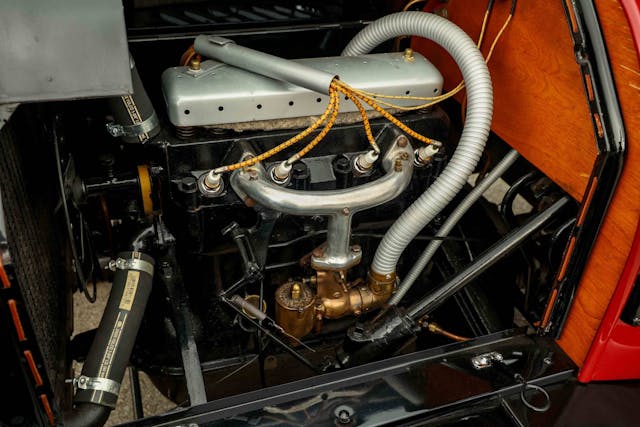
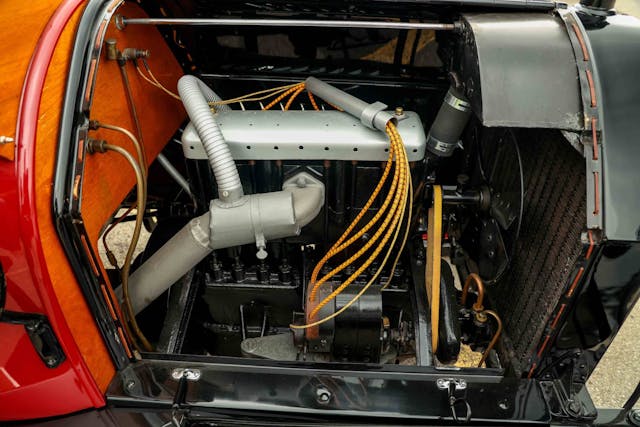
The Series H was powered by a 171-cubic inch four-cylinder powerplant designed by Arthur Mason, who created Buick’s famed “Valve-in-Head” engines years before. With an overhead valve design that produced 24 horsepower, Mason’s tidy four was so advanced it would be used until 1928, and it made the light and powerful Series H cars popular for fairground dirt track racing and hillclimbs.
In addition to the well-liked engine, the Series H also featured a conventional three-speed transmission—as opposed to Ford’s pedal-operated two-speed planetary gearbox—and was the first to display Chevrolet’s soon-to-be famous “Bow tie” logo.
With the Series H, Chevrolet began to find its footing, and Durant’s partnership with Louis Chevrolet was beginning to pay off. Chevrolet had designed and driven the famous “Buick Bug” racers for Durant and David Buick in 1909–1910, and Louis not only brought his mechanical knowledge to the new organization, but Durant also felt his name reflected the “French Type” small automobile he believed America needed. This all played into Durant’s bigger objective: To build enough equity to recapture General Motors, the emerging giant he founded in 1908 and subsequently lost in 1910.
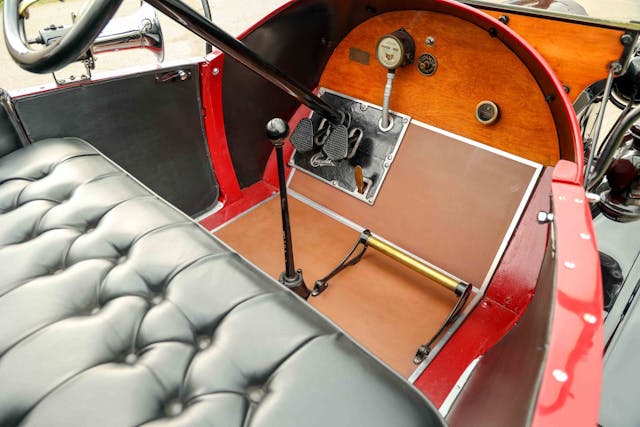
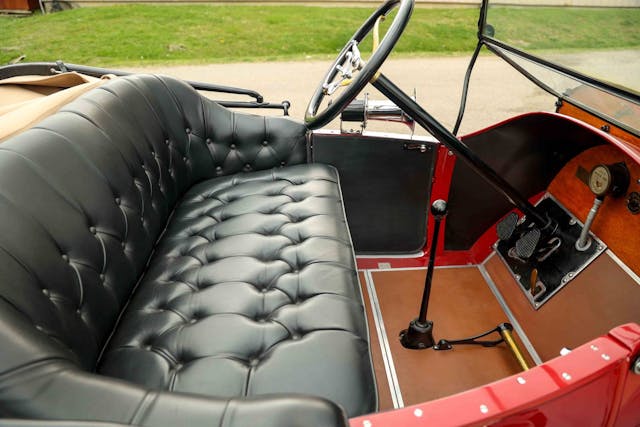
Durant started GM when he merged the automaker he owned, Buick, with struggling Oldsmobile. Cadillac and Oakland (later Pontiac) joined the fray in 1909, as did truck manufacturer Rapid Motor Vehicle Company (later GMC) the same year. Wrote Durant, “I figured if I could acquire a few more companies like Buick, I would have control of the greatest industry in this country. A great opportunity, no time to lose, I must get busy.” Perhaps he got too busy. Durant almost bought the Ford Motor Company, too, but Henry wanted $8 million in cash, not stock, and GM was running out of cash. Durant had purchased 22 companies, including suppliers like the future Delco and AC Spark Plug, in less than 16 months. Fearing bankruptcy, on September 26, 1910, GM’s bankers had Durant removed.
Undeterred, Durant continued his effort at automotive empire-building. A couple years of strong Series H sales was just what he needed—in 1916 Durant was able to offer five shares of now-attractive Chevrolet stock for a single share of GM. Headlines shouted “Chevrolet buys General Motors,” and Billy Durant was once again the leader of GM. Durant told an interviewer, “My advice to you and all others is to keep working… Forget mistakes. Forget failures. Forget everything except what you’re trying to do now—and do it.”
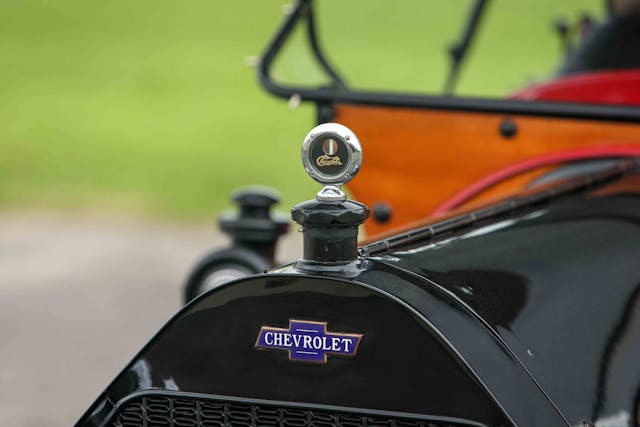
More than 100 years hence, there are scant few examples of the car that helped turn Durant’s fortunes around. Time and attrition are natural factors, but add to that the fact that there weren’t many to begin with: The work of late historian, Ken Kaufmann, reveals that Series H production started slowly in 1913—five cars in July, 100 in August—and 5005 Chevys, mostly Series H cars, were eventually built for the 1914 model year. That No. 64 survived likely came down to how it got put to use.
A look inside No. 64 shows a brass tag on the dashboard that reads, “This Automobile is sold by Wisconsin Auto Sales Co.” in Milwaukee. An advertisement in the 1913 Milwaukee Press Club annual publication Once A Year and an another in the 1913 Wisconsin State Fair program places Wisconsin Auto Sales as the state-wide distributor for Chevrolet, and research suggests they sold No. 64 new.

The car appears to have been busy in subsequent years, at least judging by a photo in a 1951 book, The Oldtime Automobile by John Bentley. The image includes Mr. C.J. Hylton, service manager of Milwaukee’s King-Braeger Chevrolet dealership, standing alongside No. 64 (erroneously dated as a 1912 model), the car adorned with painted letters stating that it had been driven 216,000 miles. (That’s a lot of mileage even for a modern car, but Series Hs have been known to cover ground—a member of the H Model Register Chapter has a 1915 Royal Mail documented at traveling over 300,000 miles by 1933.) The car remained affiliated with King-Braeger for decades—the dealer subsequently became Braeger Chevrolet, the dealership where I first saw No. 64 around 40 years ago.
Kaufmann’s research of No. 64 places its assembly in mid-August of 1913, just the second month of Series H production. The car’s rounded cowl and “zigzag” windshield, taken from the Little Four, are further evidence of this car’s early build date, as later models switched to a Series H-specific design. Only two Royal Mails with these features are known to remain: Numbers 64 and 179.
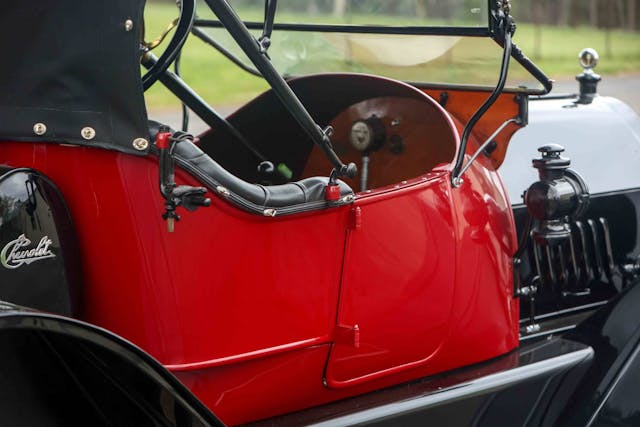
Today, No. 64 presents cleanly in red and black over a black interior, and proudly wears a blue bow tie badge atop its radiator. Though it’s in need of some attention to make it fully roadworthy, the engine happily chugs away after a turn of its crank.
As to the claim of No. 64 being the oldest known complete Chevrolet, there is an older Chevy, a Series C Classic Six in the Reynolds-Alberta Museum of Canada, but it is not complete or restored. There is also a 1914 Series H in the GM Heritage Center known as “Old No. 1,” but the H Model Register Chapter makes it clear “it had a Little Six body fitted onto an H Model chassis and was the prototype for the H Model Baby Grand. It was an advertising prop for the company and not actually the first Chevrolet with a serial number of 001.”
Like a rock, the Series H is the foundation of one of the world’s best-selling brands. It’s not often that the oldest known example of the model that made the company (and in this case, influenced the early direction of General Motors itself) comes available. At a spry 110 years old, No. 64 is ready to represent the beginnings of the brand for years to come.
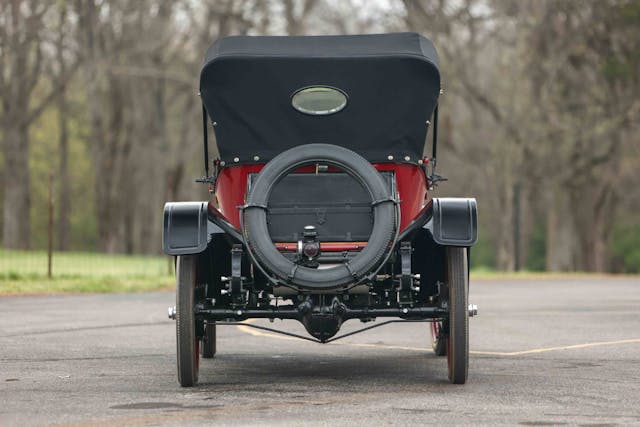
***
Check out the Hagerty Media homepage so you don’t miss a single story, or better yet, bookmark it. To get our best stories delivered right to your inbox, subscribe to our newsletters.













What a beautiful car! I’m unfamiliar with brass era Chevrolets, so this was a treat to read. Thanks for writing it up. 🙂
I’ve seen it’s Buick brother, but I don’t think I’ve ever seen a Chevy Series H in person.
If both head/driving lights work at the same time, it will be ahead of most late model Chevy pickups.
I’d buy it from the Haters auction and try to flip it to a Chevy fan at one of the mega-auctions.
I knew the late Ken Kauffman. He and I resided in the same community. I first met him in the late 1960’s where we were taking automotive classes at Calif. State University, Los Angeles. I believe that he later went on to become an engineer for Caterpillar, specializing in stationary engines. He helped me gather some details on a 1915 Oldsmobile Model 43 touring that I recently sold and referred me to several local newspaper articles announcing the introduction of this model at a local Oldsmobile Dealer.
I recently inherited a collection of over 40 antique automotive radiator badges. I dated them by looking up the Chevrolet radiator badge. This “bowtie” shape was used for only two years; the one in my collection is identical and confirms the dating. All circa 1915. What a joy to see mine on an actual Chevy!